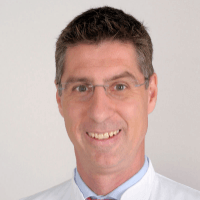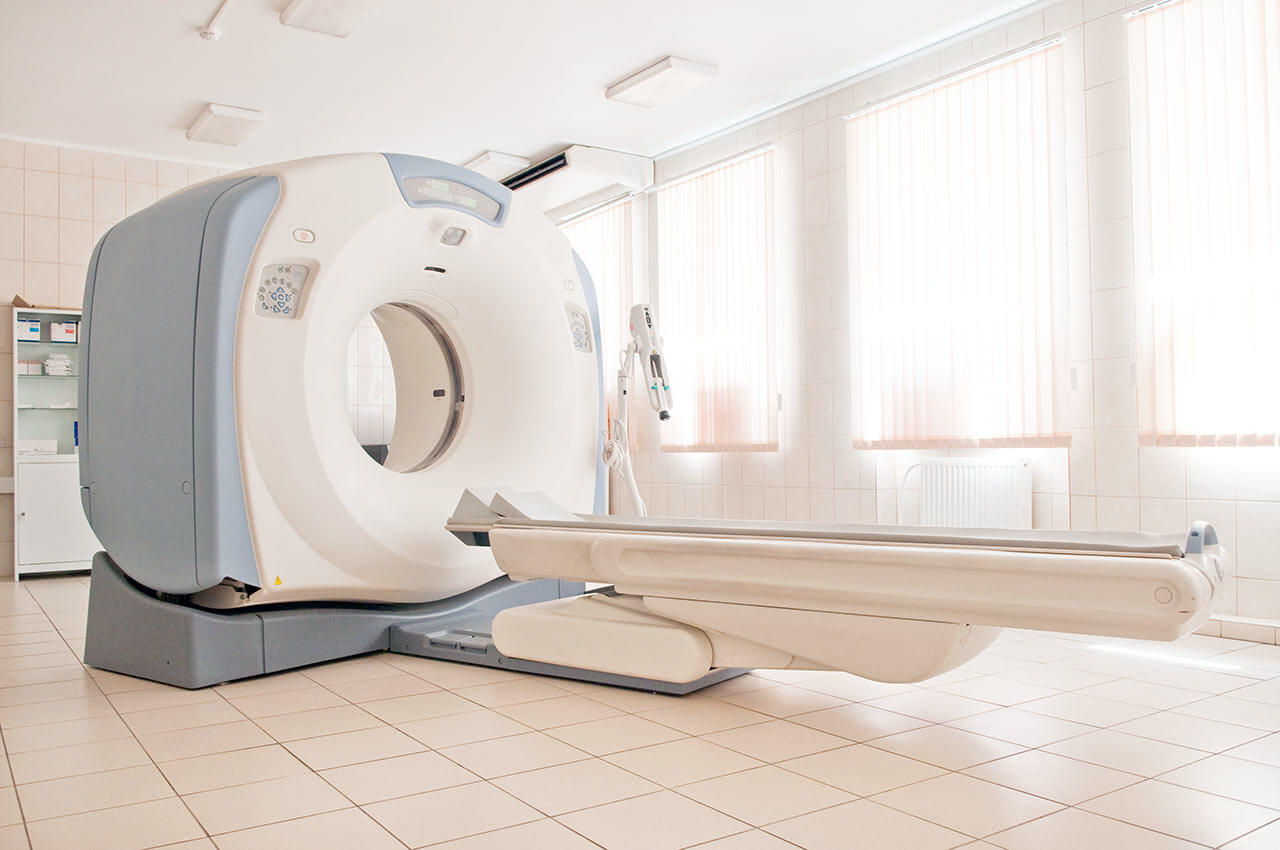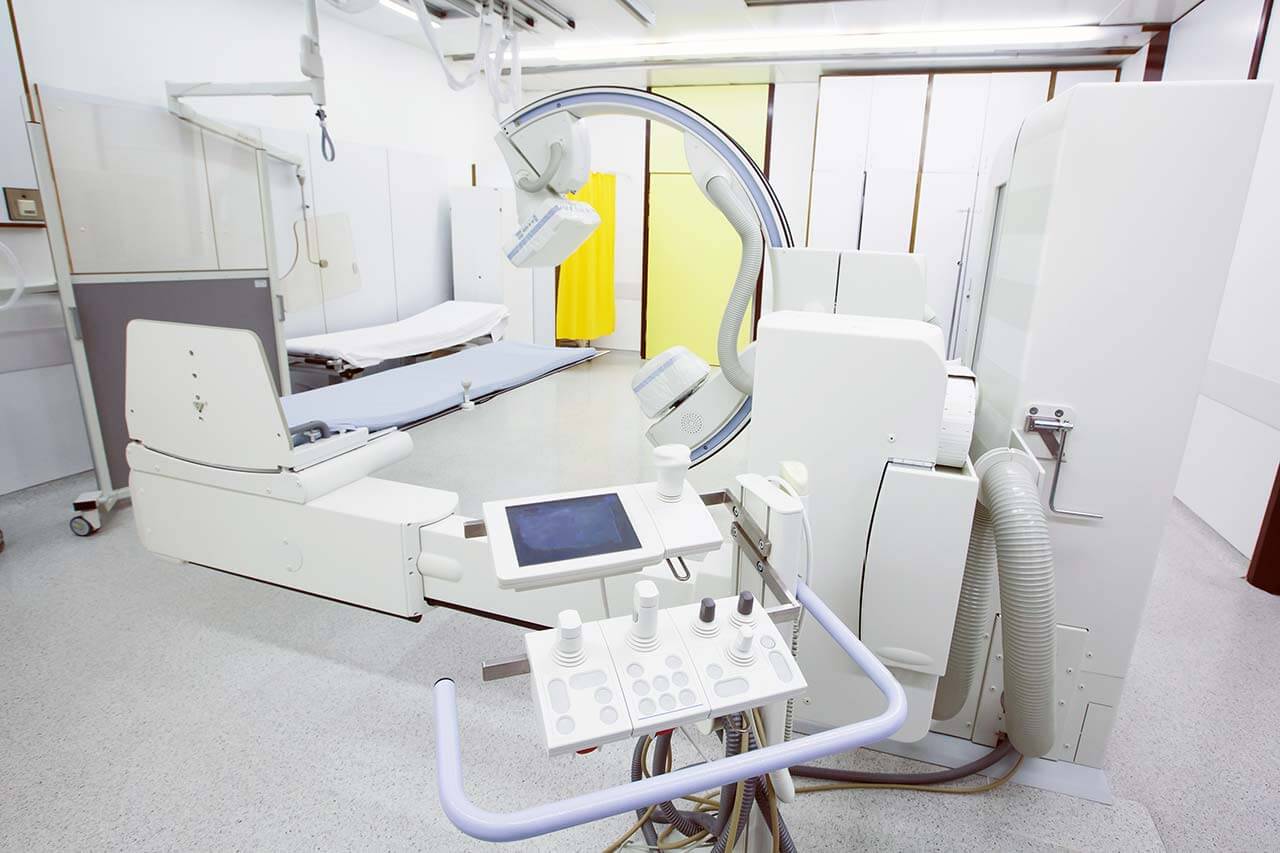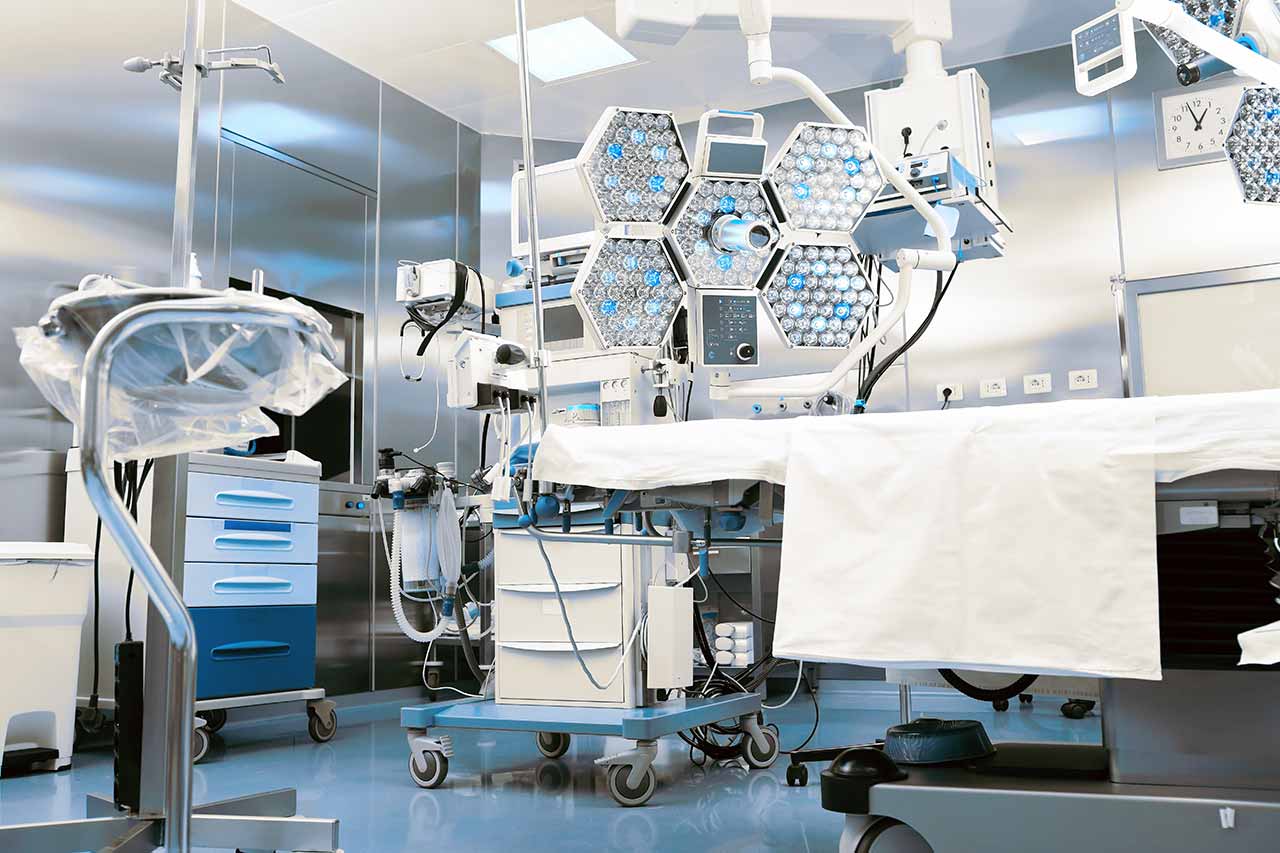
The program includes:
- Initial presentation in the clinic
- clinical history taking
- physical examination
- review of medical records
- laboratory tests:
- complete blood count
- general urine analysis
- biochemical analysis of blood
- TSH-basal, fT3, fT4
- indicators of inflammation (CRP, ESR)
- indicators blood coagulation
- thyroid and parathyroid ultrasound
- thyroid scintigraphy
- preoperative care
- strumectomy
- histologically and immunohistochemically
examination of the remote tissues - symptomatic treatment
- control examinations
- the cost of essential medicines and materials
- nursing services
- nutrition recommendations
- full hospital accommodation
- explanation of future recommendations
Required documents
- Medical records
- Thyroid ultrasound (if available)
- Biopsy results (if available)
Service
You may also book:
 BookingHealth Price from:
BookingHealth Price from:
About the department
The Department of General and Abdominal Surgery at the University Hospital Freiburg offers treatment of all benign and malignant diseases of the internal organs. The department specializes in the treatment of diseases of the esophagus, gastrointestinal tract, liver, pancreas, bile ducts, endocrine glands, etc. Also, the department provides an effective treatment for a large number of patients with complications due to chronic inflammatory bowel diseases. Particular attention is paid to surgical and interdisciplinary treatment of cancers. The Chief Physician of the department is Prof. Dr. med. Stefan Fichtner-Feigl.
The team of the department offers the very latest surgical methods for malignant tumors of the esophagus and stomach, pancreas, liver, colon and small intestine, as well as hormone producing glands. Treatment is not limited to the removal of the primary tumor and includes the surgical treatment of metastases. The patients with metastases in the liver, peritoneum, as well as multiple metastases are treated in the specialized Center for Metastatic Surgery.
A distinctive feature of the department are comprehensive minimally invasive surgical techniques. Minimally invasive techniques are used not only to treat patients with benign diseases, but more often they also help patients with esophageal, stomach, liver, pancreatic, colon and rectum cancer.
In addition to the treatment of oncological diseases, the department also has special surgical teams specializing in bariatric surgery, surgical treatment of reflux disease, proctology, endocrine surgery, transplant surgery, endoscopy and modern surgical intensive care, which is of great importance for the treatment of patients before and after surgical intervention.
The service range of the department includes the diagnostics and treatment of the following diseases:
- Esophagus and stomach:
- Malignant esophageal tumors
- Malignant stomach tumors
- Gastrointestinal stromal tumors (GIST)
- Neuroendocrine tumors (NEO)
- Benign esophageal and stomach tumors
- Gastric and duodenal tumors
- Liver and gallbladder:
- Liver tumors (benign, malignant and infectious)
- Liver metastases
- Gallstone disease, inflammation and tumors of the biliary tract
- Biliary tract and pancreas:
- Pancreatic cancer
- Acute pancreatitis – acute inflammation of the pancreas
- Endocrine tumors – hormone-active pancreatic tumors
- Adenomas – benign tumors
- Cysts – fluid accumulations
- Cystic tumors
- Colorectal cancer
- Fecal incontinence and chronic inflammatory bowel disease
- Peritoneal diseases
- Minimally invasive surgery:
- Endocrine surgery and thyroid surgery
- Wound treatment
- Hernia plastic surgery
- Metabolic surgery and obesity surgery
- Transplant surgery
- Other services
Curriculum vitae
- 11/1993 - 05/2000 Study of Medicine, Julius Maximilian University of Würzburg.
- 09/2000 - 09/2002 Assistant Physician in the Department of Surgery at the University of Würzburg.
- 10/2000 PhD thesis defense, Julius Maximilian University of Würzburg.
- 10/2002 - 04/2005 Fellow, Section for Mucosal Immunity Research, National Institutes of Health, Bethesda, Maryland, USA.
- 05/2005 - 03/2009 Assistant Physician of the Department of Surgery, University of Regensburg.
- 03/2008 - 03/2009 Scholarship of a Doctoral Student at the University of Regensburg.
- 04/2009 - 12/2013 Senior Physician of the Department of Surgery at the University of Regensburg.
- 04/2009 Doctoral thesis defense in Surgery, University of Regensburg.
- 07/2009 Venia Legendi in Surgery at the University of Regensburg.
- 05/2014 - 06/2009 Specialist in General and Abdominal Surgery (professional skill improvement, Bavarian Medical Association).
- Since 05/2011 Professor (W2) in Abdominal Surgery and Chronic Immune Pathology – attached at the University of Regensburg.
- Since 01/2012 Clinical Cooperation Partner of the Regensburg Center for Interventional Immunology.
- 02/2013 - 12/2013 Leading Senior Physician in the Department of Surgery at the University of Regensburg.
- 01/2014 - 09/2016 Deputy Head of the Department of Surgery at the University of Regensburg.
- Since 10/2016 Chief Physician of the Department of General and Abdominal Surgery at the University Hospital Freiburg.
Photo of the doctor: (с) Universitätsklinikum Freiburg
About hospital
The University Hospital Freiburg is famous for its rich history and is one of the oldest and most prestigious medical facilities in Germany (one of the three best medical institutions in the country). The hospital was based on the Faculty of Medicine of the Albert Ludwig University of Freiburg, which celebrated its 550th anniversary in 2007. It should be noted that the hospital is proud of its world-renowned specialists, many of whom during their work here have become Nobel laureates.
The medical facility represents all fields of modern medicine. It consists of 42 departments, 11 institutes and 10 interdisciplinary centers. The highly qualified doctors of the hospital deal with the treatment and rehabilitation of patients with both common and rare diseases. All departments and institutes of the hospital take an active part in fundamental researches of international scale, due to which patients have access to the very latest achievements of medicine, advanced diagnostic methods, state-of-the-art medical equipment and proven effective methods of therapy.
The hospital has a variety of medical achievements, for example, the world's first TIPS procedure, the first implantation of the Jarvik-2000 artificial heart in Europe, the first robotic-assisted surgery on the brain, and the first combined cardiopulmonary transplantation in the land of Baden-Württemberg. In 2004, the University Hospital Freiburg became the first German hospital, which performed kidney transplantation in the incompatibility of blood groups. At the moment, the hospital belongs to medical centers with the greatest experience in performing such an operation.
An interdisciplinary approach to treatment, highly qualified staff, as well as individual patient care and a pleasant environment are key to the hospital’s success.
Photo: (c) depositphotos
Accommodation in hospital
Patients rooms
The patients of the hospital are provided with comfortable rooms with a pleasant design, which create a conducive atmosphere for recovery. The standard furnishing of the patient room includes a telephone, a free radio and TV, a device for calling medical staff, lockers and a safe, an adjustable bed, a chair and a table. The pediatric departments are designed with play areas. The patient may be accommodated in a single or double enhanced-comfort room (for example, with an ensuite bathroom) at an additional cost.
Meals and Menus
The patients are offered good three meals a day with a large selection of dishes. The patients inform about their wishes to the menu in advance, and this information is transmitted to the kitchen. Throughout the day, patients may drink mineral water and tea, which can be found in the department on special tables. The bedridden patients receive drinks from the nursing staff. Other drinks may be purchased at the hospital’s cafeterias and bistro, where patients can come along with visitors.
If you do not eat some products due to intolerance or other personal reasons, please notify the nursing staff in advance, so that all your wishes to be taken into account when preparing the menu.
Further details
Standard rooms include:
Television
All patient rooms have a free radio and TV. The patients can also watch the hospital’s own 24-hour channel with a varied program and interesting information.
Accompanying person
At the availability of free beds, the accompanying person may be accommodated in the same room with the patient, at an additional cost. In addition, the hospital offers special accommodation conditions for patients requiring long-term hospitalization. Parents have at their disposal special apartments in the children's hospital.





